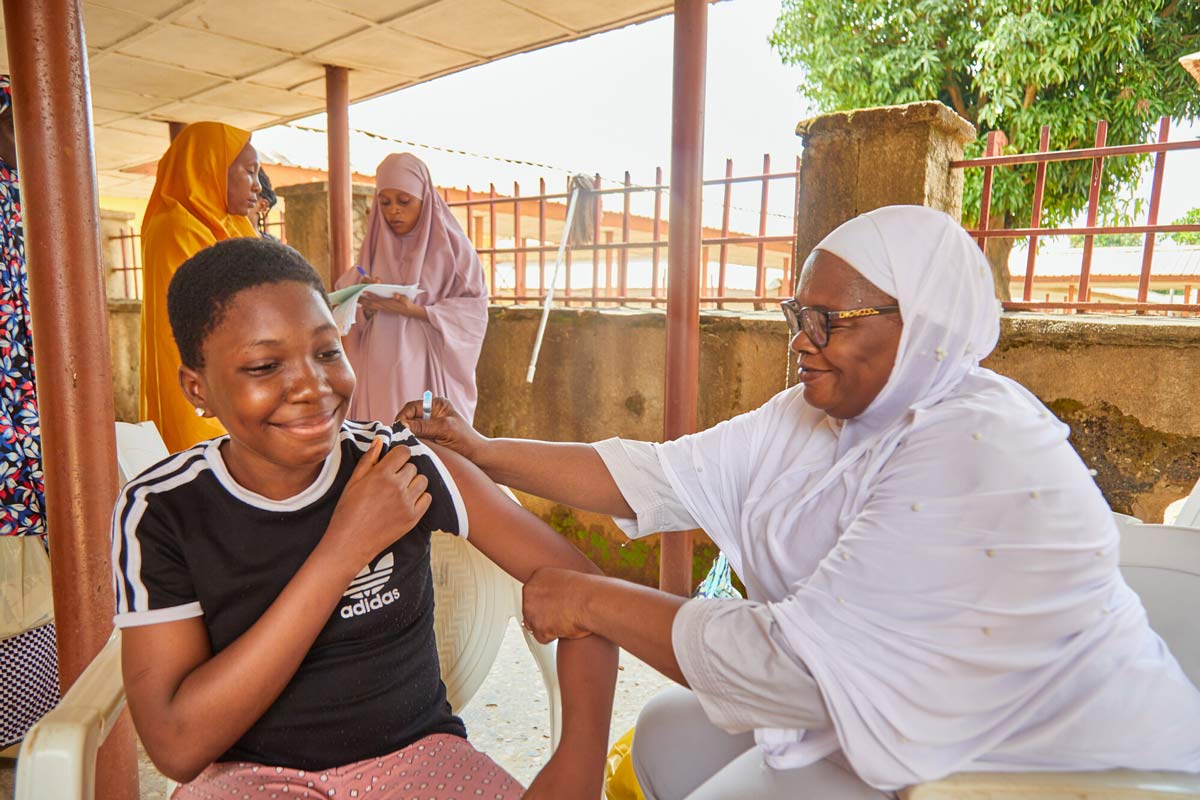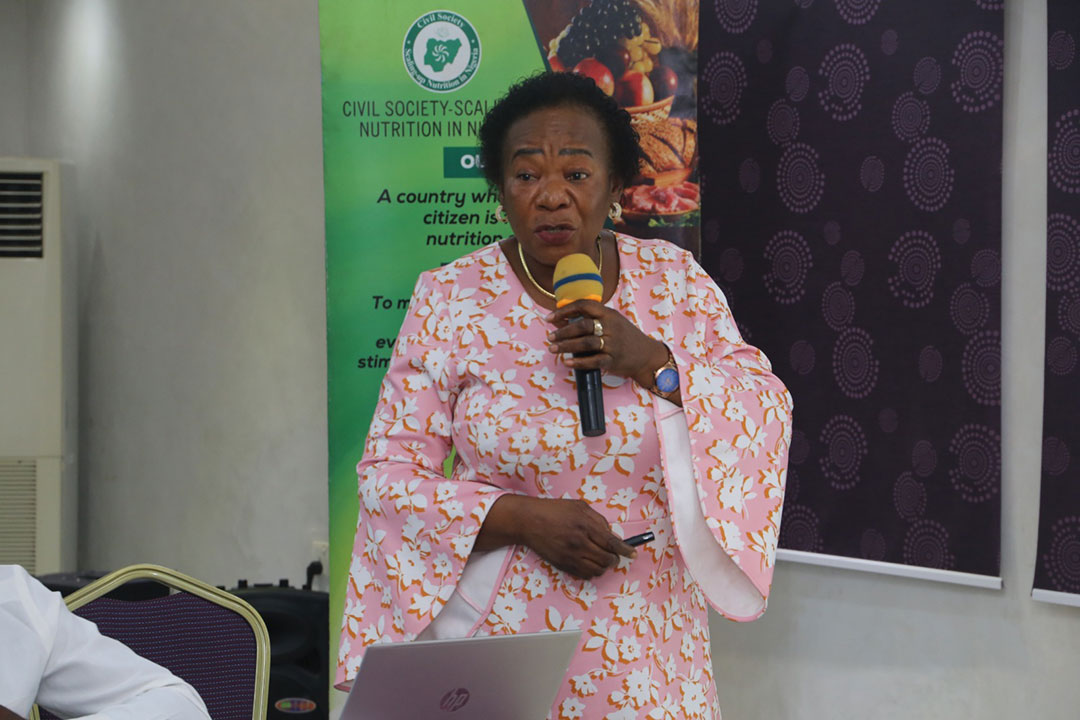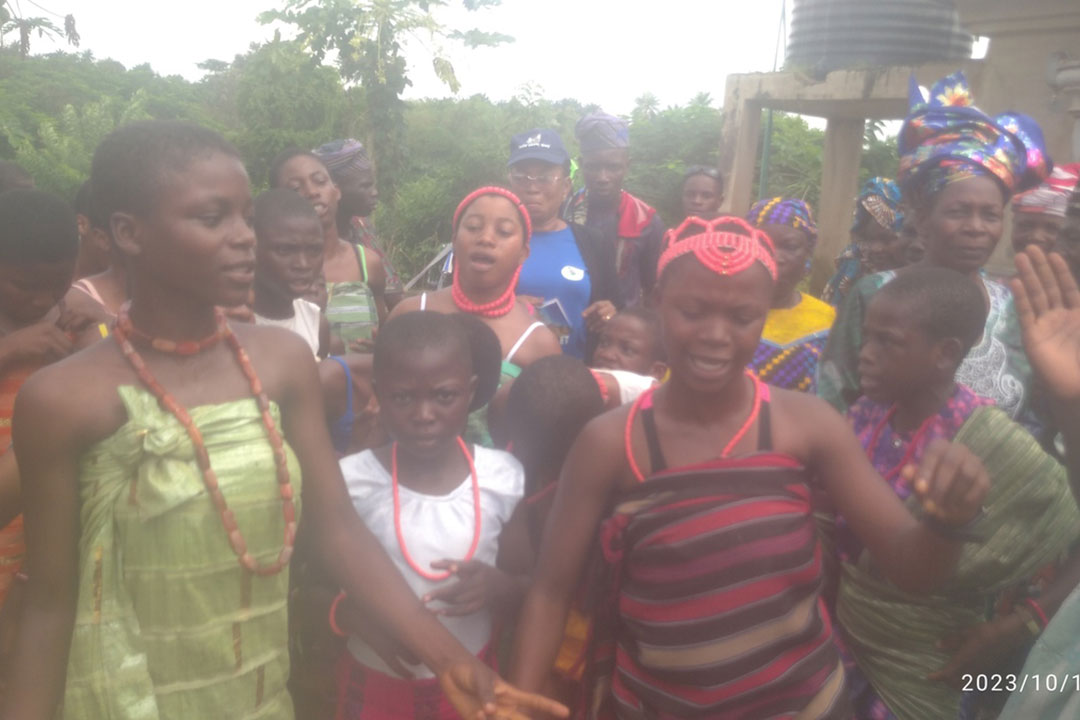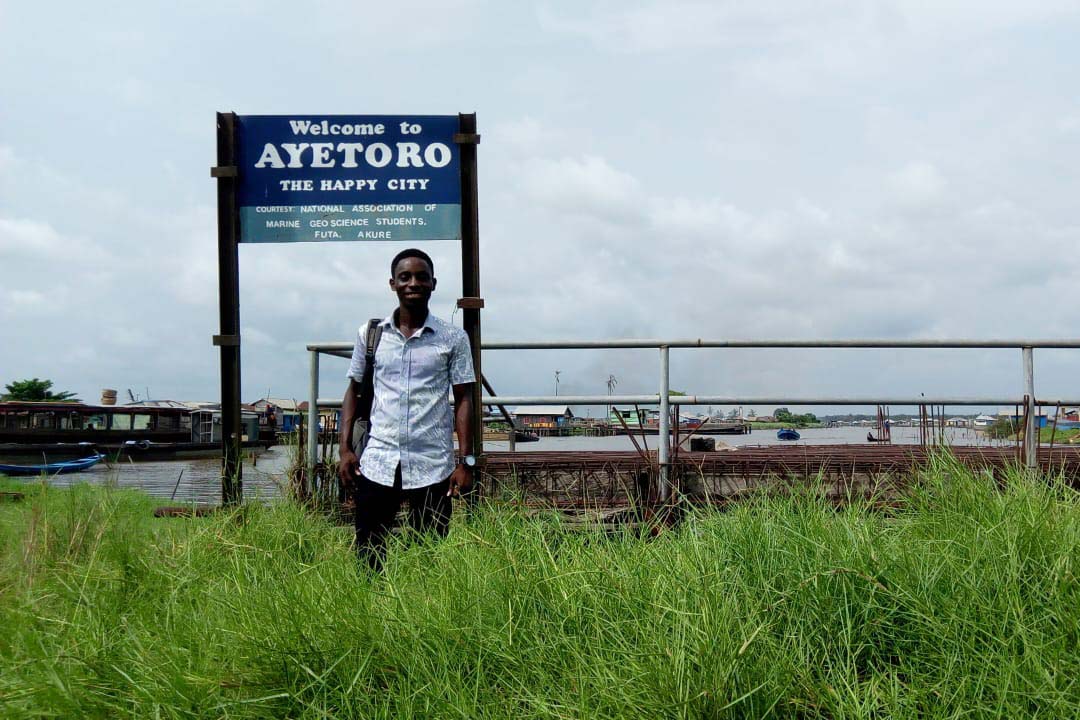Lagos learning the hard way
The rollout of the first phase of the COVID-19 vaccination exercise has not been without its challenges but there is a focus on learning and improving.
- 7 May 2021
- 4 min read
- by Royal Ibeh
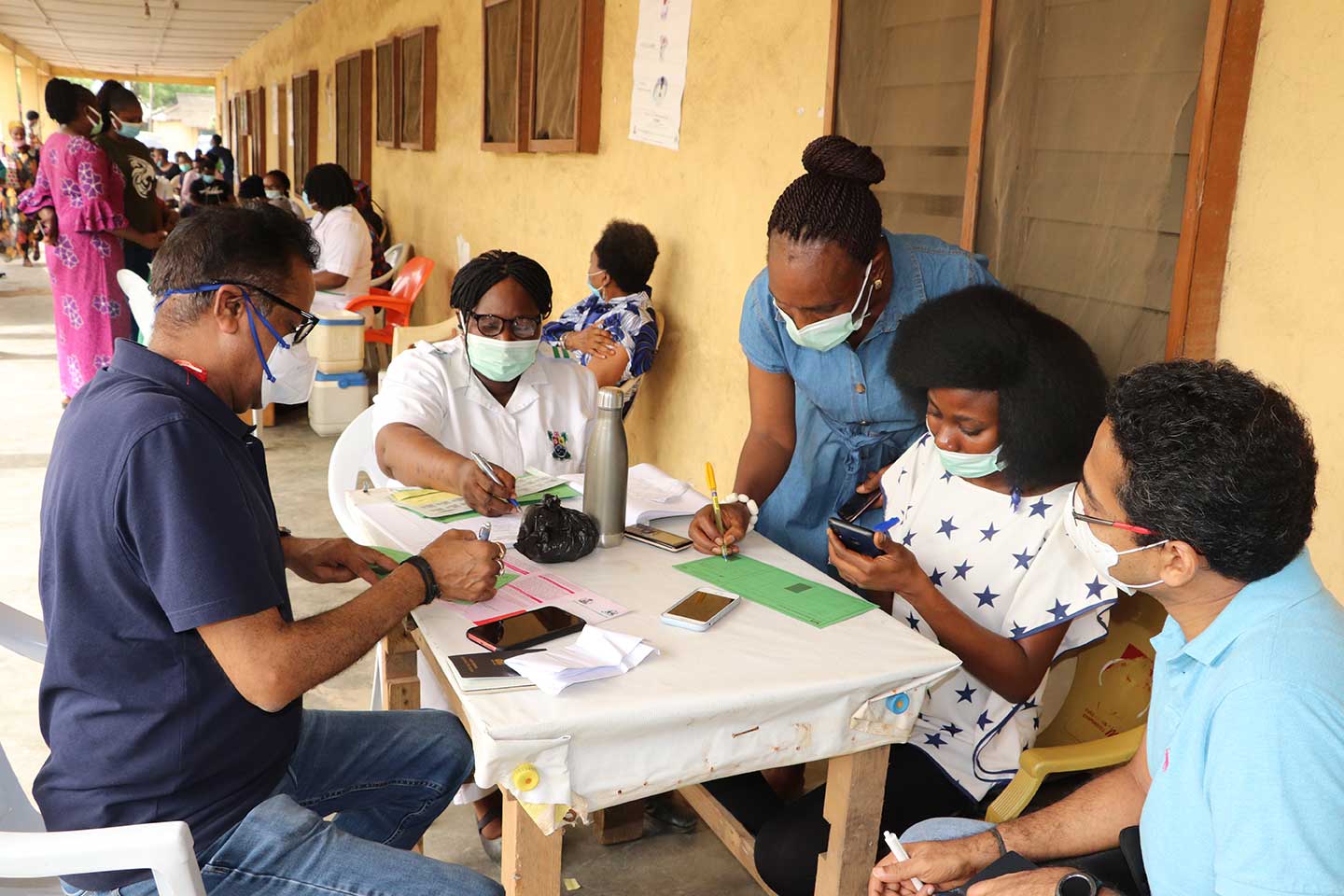
“When I heard that Nigeria has received nearly four million doses of the COVID-19 vaccine, shipped via the COVAX Facility, I couldn’t hold my joy,” says Lara Adejoro, a frontline worker in Lagos state.
“That was a day to be remembered because we have lost a lot of our people in the state to the virus,” she adds. “I was so happy that I went to my social media handle to spread the news, while urging others to ensure they get vaccinated.”
On 12 March, Lagos State joined other states across Nigeria to roll out the first phase of the COVID-19 vaccinations, with 507,000 doses received from the Federal Government of Nigeria, supplied by the COVAX Facility, a global partnership led by Gavi, the Coalition for Epidemic Preparedness Innovations (CEPI), UNICEF and the World Health Organization (WHO).
Few days after the arrival of the vaccine, Adejoro set out to get her first AstraZeneca COVID-19 jab, at Sango Primary Healthcare Centre.
Lagos is a megacity with a population of 21 million and the epi-centre of the COVID-19 virus in Nigeria. This has posed huge logistical challenges for the state government in rolling out the vaccines, which in some cases has led to teething problems. For example, despite setting up an online system for people to register for their COVID-19 vaccine at one of 88 sites, residents were not sent specific appointment days.
Few days after the arrival of the vaccine, Adejoro set out to get her first AstraZeneca COVID-19 jab, at Sango Primary Healthcare Centre (PHC) in Agege Local Government Area (LGA), Lagos. She decided to go around midday, hoping to avoid crowds but was disappointed, with many having been at the centre from as early as 7 am.
“I was surprised to see crowds at the Sango PHC,” says Adejoro. “It was as if everybody from that LGA decided to get vaccinated on that same day. I was unfortunate to go to that PHC, because there was a long queue from morning ‘til 2 pm when the health workers stopped the vaccination exercise for that day.”
Have you read?
The situation was, however, different in Oregun PHC and Lagos State University Teaching Hospital (LASUTH). Chima Akwaja, who has had his first jab of the AstraZeneca COVID-19 vaccine, said he walked into the Oregun PHC, and got his first shot seamlessly. “There was no queue. We sat under a canopy and, within the space of an hour, I was registered at the centre and vaccinated,” he says.
Adejoro, however, was not discouraged. Nothing would stop her, as she waited patiently for her turn. By the time the clinic closed, she had received her first shot and left very excited, although that happiness was short-lived when she remembered that she still had to go to work later that day.
“I would have been glad if I was enlightened by the health workers that I might react to the vaccine, to enable me to rest for that day. I experienced a mild headache, chills and my temperature was a bit high. You can imagine working with these symptoms,” she says.
The State’s Commissioner of Health, Prof. Akin Abayomi, acknowledges that there are several lessons that have been learnt during the initial vaccination drive, which are being taken into consideration to ensure that the challenges experienced by Adejoro and others in the state are solved.
“We will address these challenges before the commencement of the administration of the second doses vaccination drive,” says Abayomi. “We plan to put in place a digital platform that will ensure scheduling of clients to prevent overcrowding at the facilities, which leads to opportunists taking advantage of chaos that may ensue.”
So far, of the 257,756 people who have received their first shot, just a few have experienced adverse events following immunisation (AEFI) or adverse events of special interest (AESI), such as pain at the injection site, fever or body pains lasting 24 to 48 hours.
The commissioner says that, going forward, the Lagos State Government has put in place a robust surveillance system to effectively monitor and track such events. They have also been encouraging anyone who experiences any adverse effects to contact the LGA Disease Surveillance and Notification structures.
“The state has set up a continuous active risk communication process to manage the expectation of the residents, educate them around the need to properly monitor adverse events and ways in which they can inform official channels,” he says. “We endeavour to manage the mammoth logistics more effectively moving forward.”
